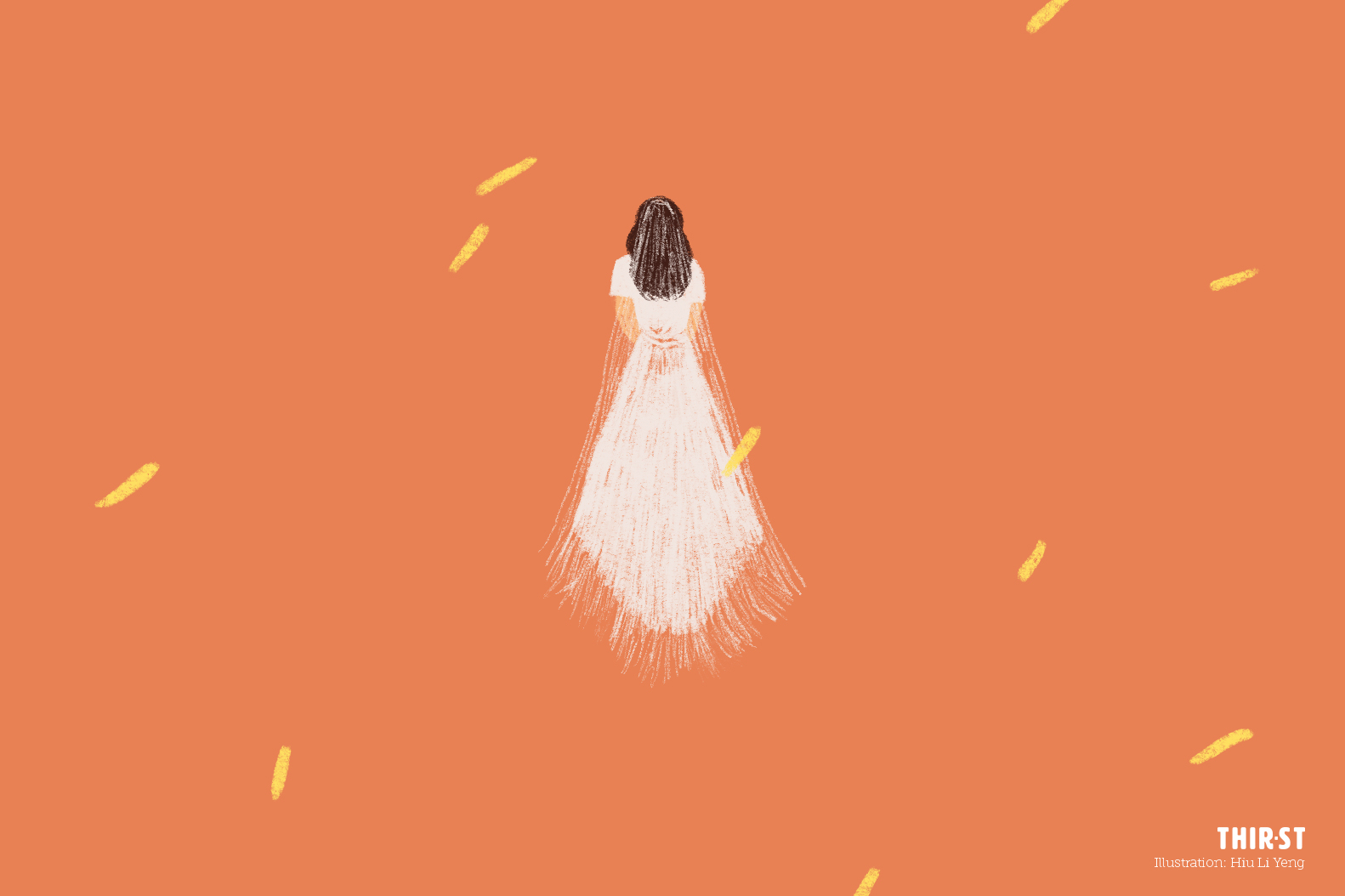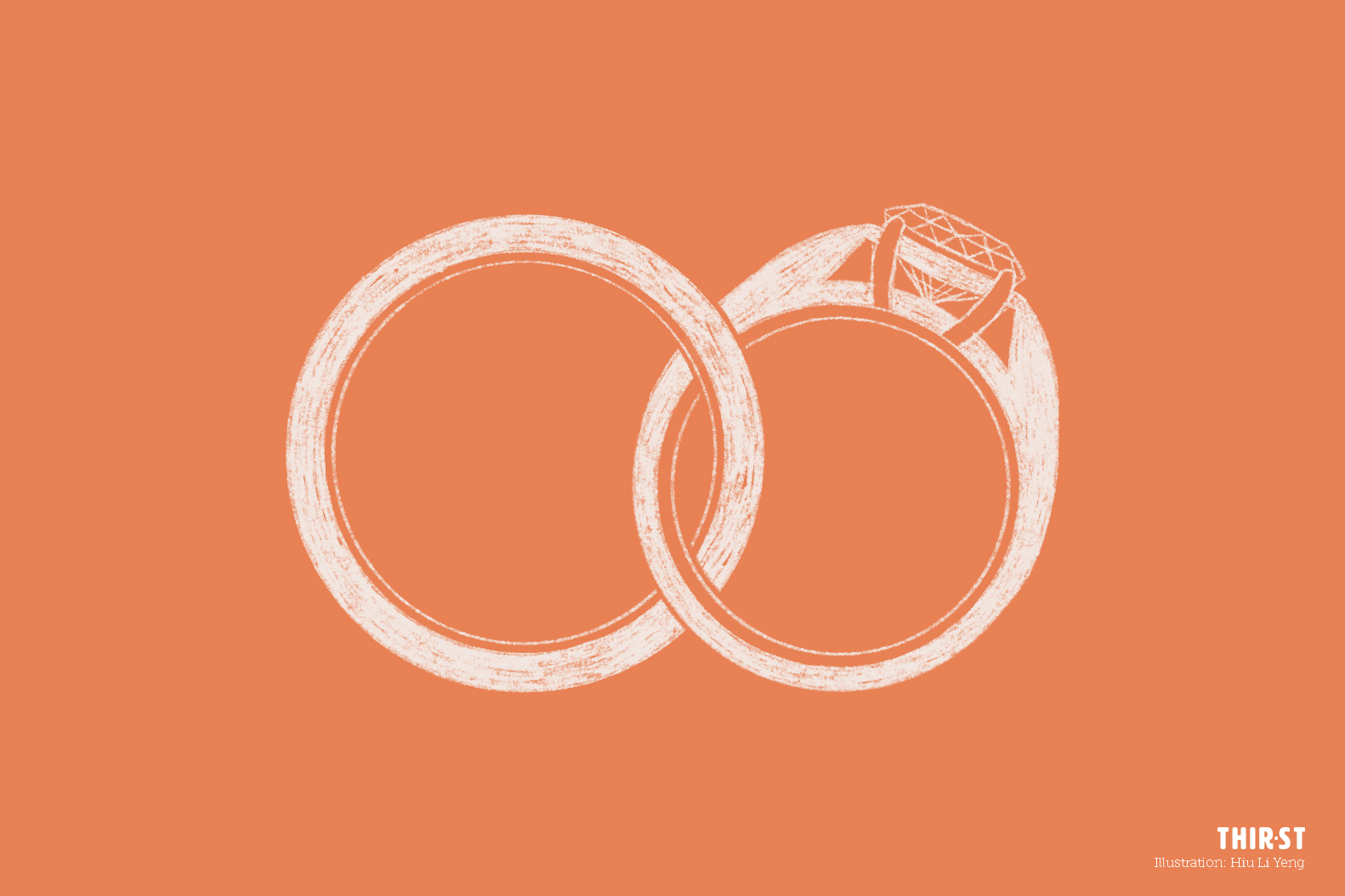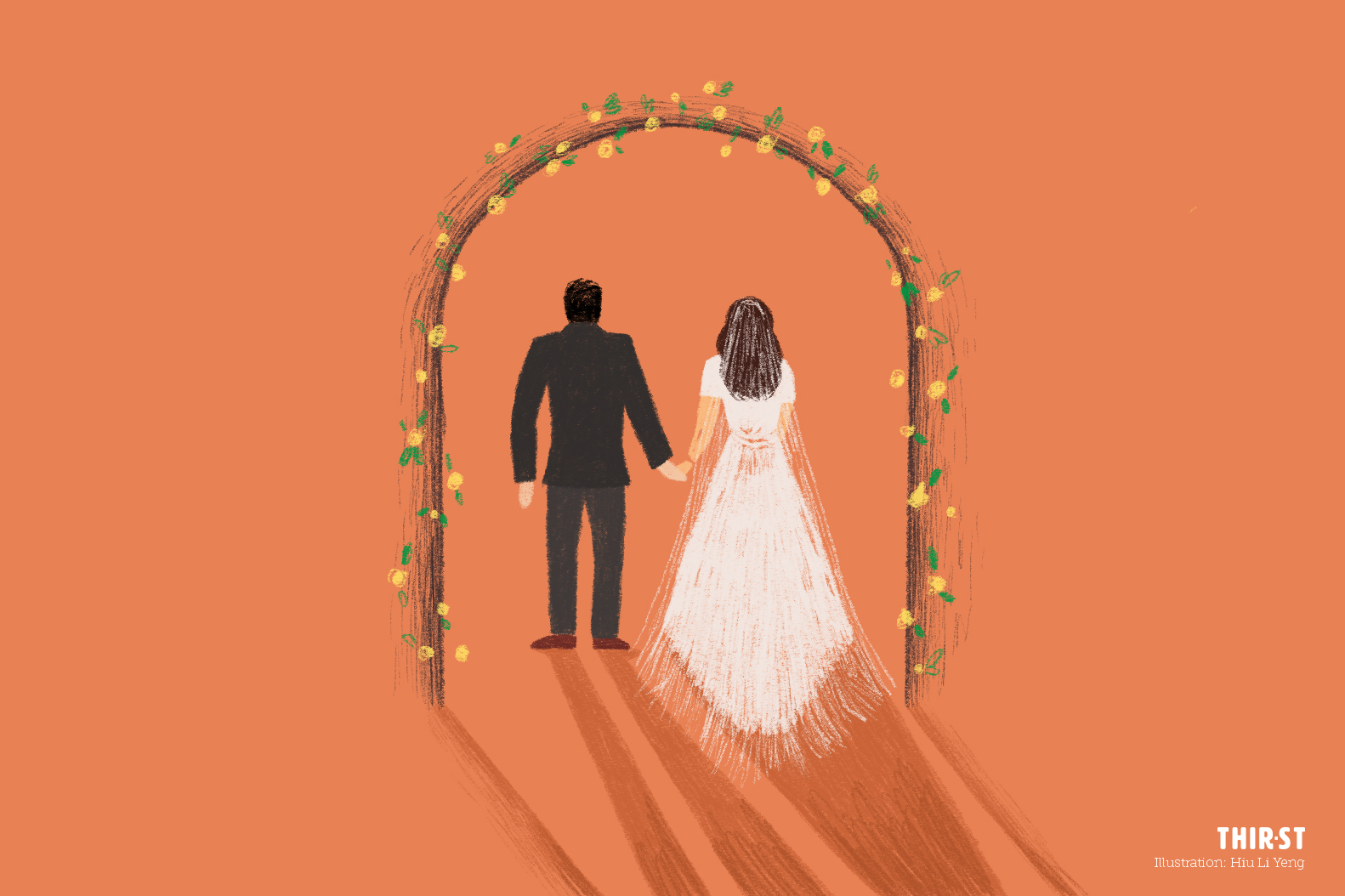Seen that interesting article where one couple shared about how they opted to get married without a wedding?
For the benefit of those who haven’t read it, it was an interview with a couple who decided not to take the conventional route of holding a wedding to celebrate their union – instead they simply headed to the Registry of Marriages to have their marriage solemnised.
On the day, the bride did her own makeup and put on a dress that she wore to her best friend’s wedding years ago, while the groom donned a white shirt with khakis. After signing the papers and doing a 30-minute photoshoot, they had lunch at a food court nearby.
The whole procession took such a short amount of time that the couple did not even need to apply for leave!

At first glance, I thought this was such an amazing idea because of how much money they would save.
I applaud how they had the courage to do something so counter-cultural, how they were so chill about everything, and how they somehow managed to have their loved ones buy into the idea too.
It seemed that I wasn’t alone – shortly after reading that article, I saw that the headline was making its rounds on Instagram, with many standing by the couple’s decision.
But as I began to read up more on the significance of weddings, I found that there is actually a lot of symbolism behind weddings – more than one might realise.
These are some elements of a wedding I would personally retain even if my future spouse and I eventually opt for a simple procession. (And I believe some of them were kept by the couple as well!)
First of all, a marriage is considered an act of union (Genesis 2:24). It is the symbolic representation of how Christ (the bridegroom) gave Himself up for the Church (the bride) in order for us to be eternally unified with Him (Ephesians 5:25-33, Isaiah 62:5).
In other words, marriage is a very sacred thing.
A wedding is not just a ceremony, but a holy matrimony between two individuals, vowing to stay together through the joys and storms in life.
I have always thought that the biggest highlight of a wedding is the bride walking down the aisle in fairytale-like fashion, while the groom waits at the end, ready to receive her from her father and kickstart the rest of their lives together.
But I have come to realise that the vows are actually the most important part of weddings.

By saying “I do” to one person, you are saying “I don’t” to all others. You are effectively declaring publicly that you are willing to be wedded to this person, no matter what happens. It takes incredible faith to say such a thing to a flawed human being.
Entering into this covenant with your spouse and Christ – and saying that you will not give up on this relationship and you are willing to stick it out with this person for the rest of your life, for better or worse – is such a beautiful image I truly believe is worth celebrating through a wedding.
Just like how water baptism is an outward public declaration where Christians tell others that they have decided to commit their life to Christ, I personally feel we should have the same reverence towards weddings.
And there is more.
The veil that covers the bride is now associated with purity and modesty, and it is only unveiled by the groom at the altar. But some sources point to a deeper spiritual significance too.
When Christ died on the cross for our sins, the temple veil was torn in half (Matthew 27:51), an indication of how we are now able to have full access to the presence of God because of what Christ has done for us.
Likewise, when the groom lifts the veil off the bride, it brings to mind how both of them have complete access to one another.

Another symbolism in weddings is the all-white gown that the bride wears, which has now come to represent a woman’s purity.
It has also been said to recall Revelation 19:7-8, where the Apostle John describes seeing a vision of the multitude in heaven. Giving praise to God, this is what they were rejoicing about:
“For the wedding of the Lamb has come and his bride has made herself ready. Fine linen, bright and clean, was given her to wear.”
Referring to Christ and His Church, John was speaking about how Jesus has clothed believers with righteousness, making us acceptable in the eyes of God.
There are many more symbols in weddings, but the final one I want to highlight is this: The exchanging of rings.
Although the Bible doesn’t specifically talk about rings, the use of wedding rings have been traced to Christian ceremonies in the 9th century.
They are also commonly worn on the ring finger (the fourth finger) on the left hand because people in the past believed that the vein in the fourth finger led straight to the heart. This exchange symbolises the sharing of wealth, possessions, talents and emotions with one another.
Personally, I feel that is such a beautiful way of looking at marriage. It is no longer “you and me” anymore – it becomes an “us” thing from here on out.
Regardless of how scientific this is, wedding rings have certainly come to symbolise an eternal quality of love because a circle has no beginning or end. They are an outward expression of the inward bond that a couple has.

At the end of the day, whether a couple wants to hold a wedding or not is their own choice.
But after learning more about weddings, I have a clearer picture of the importance of weddings, even if they are stripped of their fanfare. I believe certain powerful spiritual symbols still ring through and should be preserved.
As much as holding a wedding is expensive and requires a lot of work, the outward public declaration of saying “I do” to my future spouse is more than enough reason for me to hold a wedding – no matter how small, no matter how humble.









